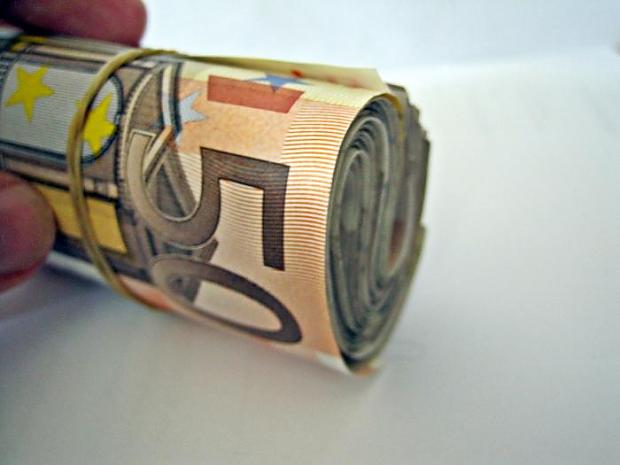The Euro is going to cost us a lot of money - and democracy as well
The Euro is going to cost us a lot of money - and democracy as well

This week it was announced that France's President Macron is going to get at least part of his way. There will be no separate budget for the countries in the eurozone, but money will be set aside for the zone's weaker members. As usual, the Dutch government has swept the decision under the carpet. The euro was introduced without anyone explaining to the public what it would in reality mean, and now the ongoing transfer of money from the richer to the poorer eurozone countries is being pushed through without any effort having to be made. That's dangerous, not only for our wallets but for our democracy, too.
Of course we must show solidarity, but it's the euro itself that keeps weak member states weak by depriving them of control of their own currency and thus the ability to allow it to fall in value, meaning that only by means of low wages and stripped-down social provision and public services can they compete. And the people of those countries have understandably had just about enough of austerity. So the only alternative is permanent support from the other eurozone countries. And now it's the turn of the people of those countries to have had enough. All of this is reason for an intense public debate, instead of which we are seeing important decisions being taken with no public debate whatsoever.
It's strange that just this week Minister of Foreign Affairs Kajsa Ollongren received the report from the Remkes Committee of State, a report which points to the danger of fragmentation in our democracy. The fact that first the Finance Minister and then the Prime Minister himself have opened the way to a separate support fund for weaker eurozone countries is a really fundamental decision. Once this step is taken, there's no way back, while Macron has already announced that in the future the fund will have to have the capacity to be constantly increased according to what's needed. And so we find ourselves in the euro's trap, like lobsters in a pot, and no member of the public has had the slightest say in this. The decisions are being taken in back rooms behind closed doors. How is this democracy?
From the very beginning the SP has been a major critic of the overhasty introduction of the euro. A stable monetary union was never going to be built from the currencies of countries with such widely divergent economies. First we had the problems in Greece, and now it's Italy's turn, and the euro is hobbling from crisis to crisis. In addition, both among and within the member states, inequality is growing. The 90% are having second thoughts, while the 10% profit. If in some places discontent is being stoked up, the fuel is being provided by spending cuts piled upon spending cuts, “to keep the euro stable”. This goes for the Mediterranean countries, but also for the richer states of the eurozone, which are obliged to keep back enough money to help keep the southerners on their feet. This was the real message from Finance Minister Wopka Hoekstra and Prime Minister Mark Rutte: because big capital needs and deserves the euro, ordinary people must bleed. This is not a message that will help any state commission to ease dissatisfaction.
Amongst all the horror of the attack in Strasbourg, the Climate Conference in Poland and the Brexit chaos, the decision of Hoekstra and Rutte may not seem like much. But that doesn't make it any less important. Not just this step, but the euro as a whole needs to provoke a broad social debate. At least if we value our democracy.
- See also:
- Dennis de Jong
